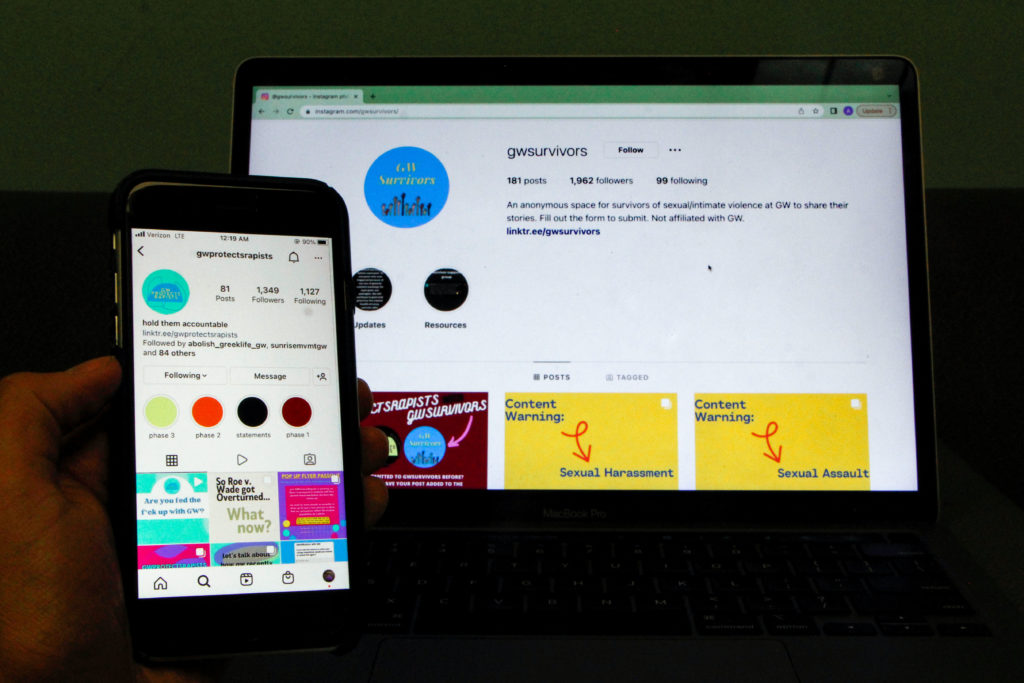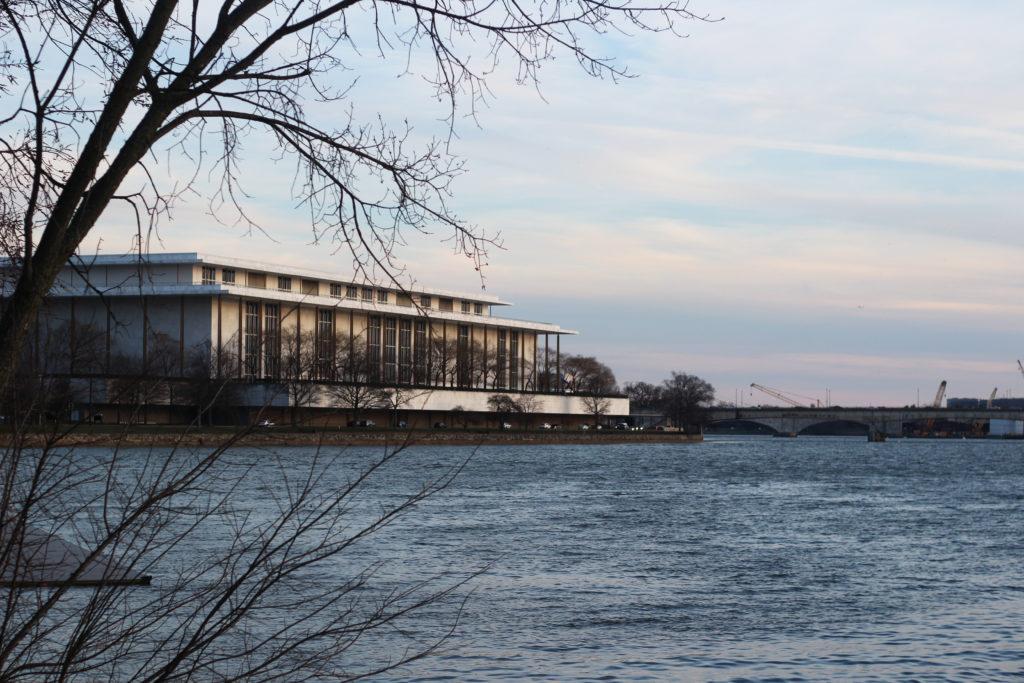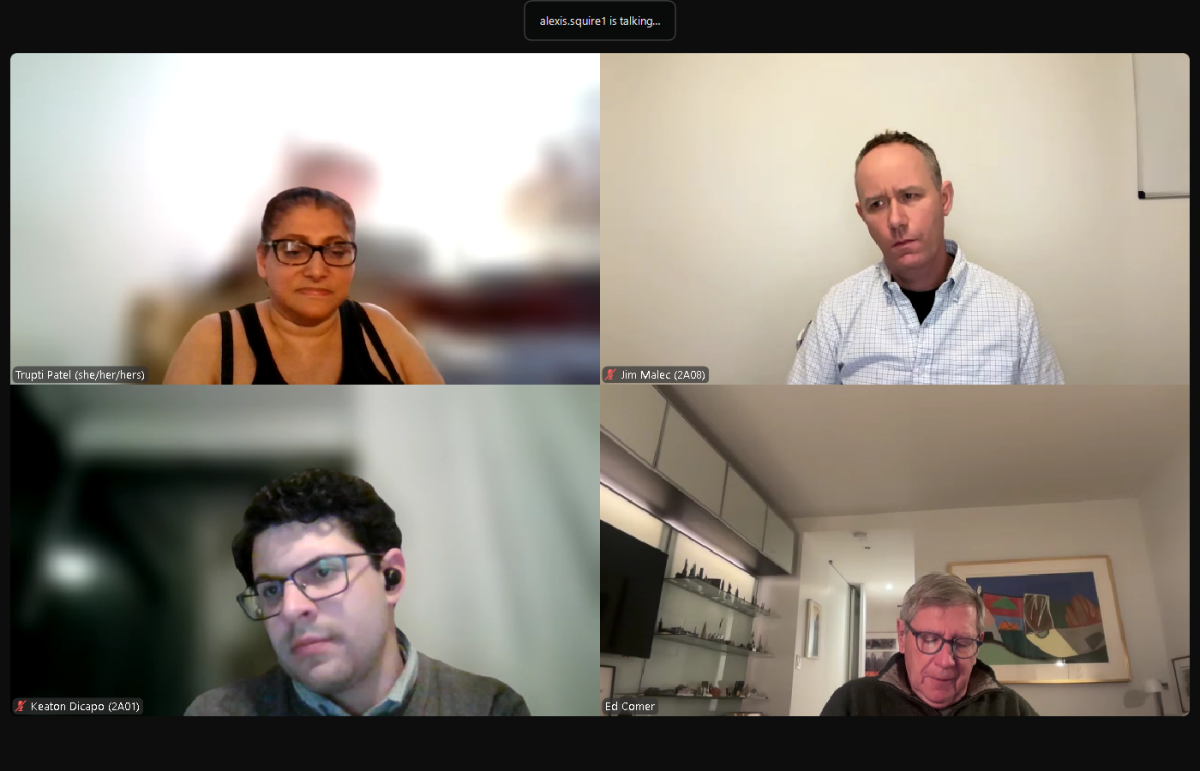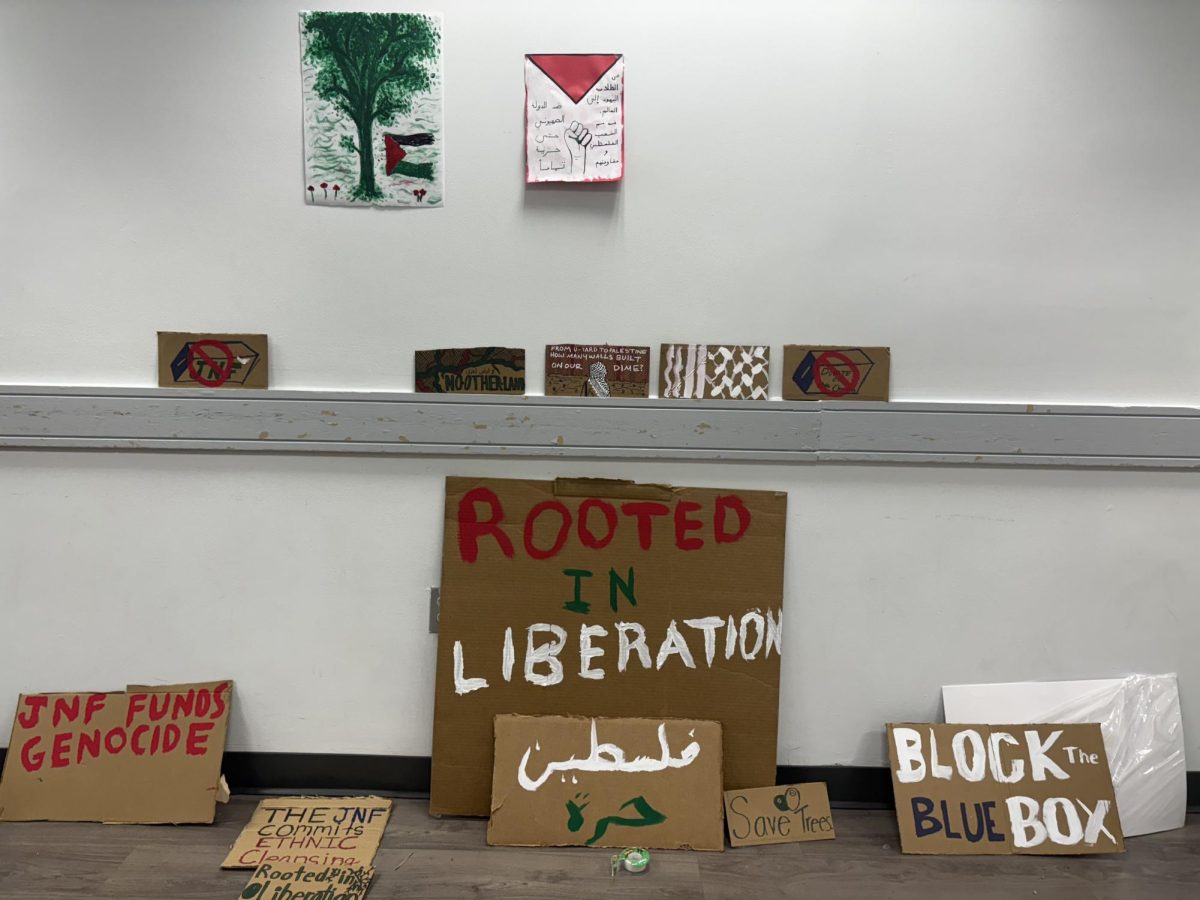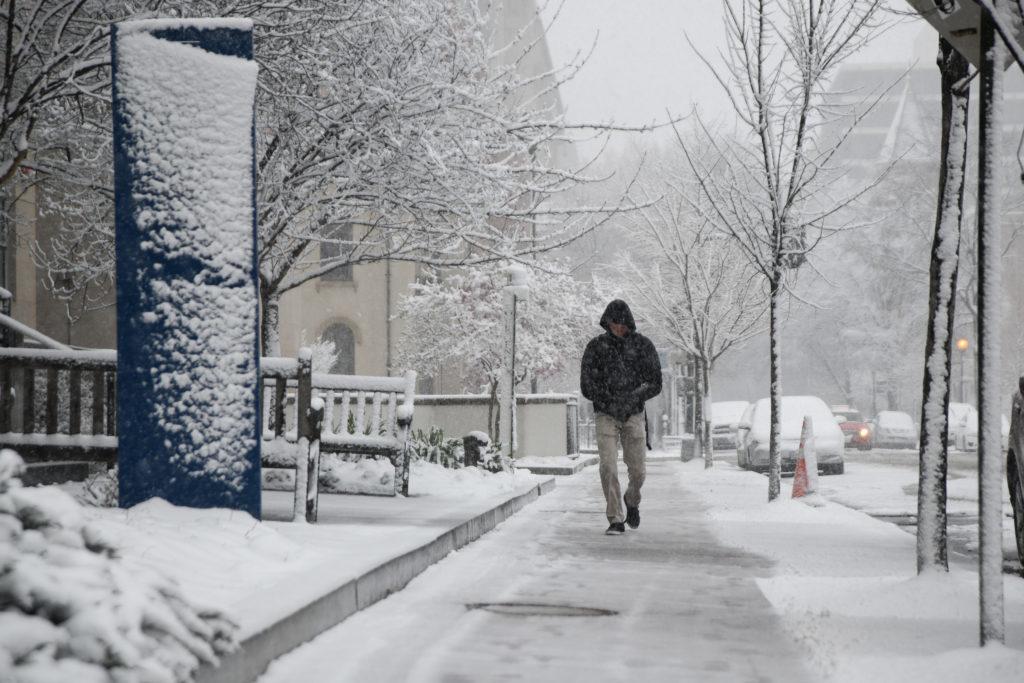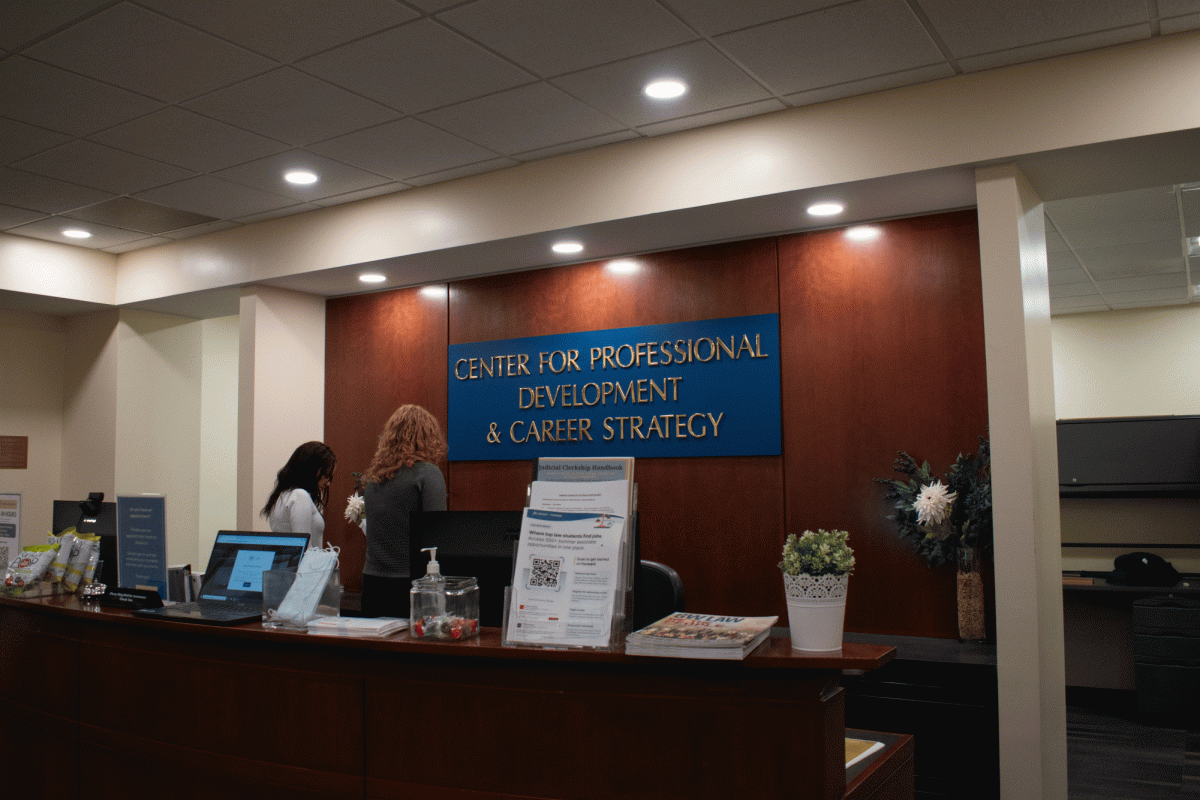As GW continues to reform Title IX policy, student organizations are forging their own paths to advocate for student survivors of sexual assault.
During the past year, students have taken to social media to share their personal stories about sexual assault on campus, their experiences with the Title IX Office and widespread dissatisfaction with the reporting process. Activist groups centered around sexual assault prevention at GW plan to fundraise with other student organizations and call on officials to bolster the Office of Advocacy and Support this fall after staff departures left gaping vacancies last summer.
Members are aiming to raise awareness of sexual assault in an effort to increase campus safety and educate students on the resources available to them. Each of these three groups has established plans to advocate for survivors this fall.
We’ve outlined the advocacy efforts from leaders of the charge for more stringent Title IX protections this fall – GW Survivors, GW Protects Rapists and Students Against Sexual Assault:
GW Survivors – Distributing emergency funds for survivors
Instagram account GW Survivors shares stories from anonymous students about their experiences reporting incidents of sexual assault to officials, including the Title IX Office. Two anonymous students have run the account since one of them created the profile in May, posting infographics over the summer to advocate for changes to GW’s approach to sexual violence, specifically regarding the Title IX reporting process.
“I think a big piece of what I’ve heard from a lot of survivors is for the first month, everyone in your life cares, everyone wants to hear about it and they bring you lunch and they sit with you while you cry and then they expect you to be all better,” the account’s owner said. “And you’re not all better. It’s something that honestly you’re going to carry with you for the rest of your life.”
The owner asked The Hatchet to remain anonymous to maintain her safety and privacy as a survivor of sexual assault.
She said she plans to distribute emergency funds as mutual aid for sexual assault survivors to access resources like therapy and medication copays, reproductive health care and legal assistance, which survivors will be able to request money from via a Google form.
The owner of the account said GW Survivors is currently focusing on fundraising for a survivor in the GW community who is trying to leave a “domestic abuse situation.” She said they have raised about $300 of their $1500 fundraising goal.
She said GW Survivors’ fundraising efforts are independent from the University to sidestep potential obstacles that could come with registration as a student organization.
“We don’t adhere to their politics, we don’t adhere to their red tape and we don’t adhere to their rules,” she said.
The account’s original founder said their mission is to change how the University approaches cases of sexual assault to avoid “creating more trauma” for survivors who choose to report their cases. She said GW must reduce the number of times survivors need to retell their experience while filing a report.
“Through student pressure, we are able to change not only campus culture and social pressures but also the systems that survivors are subjected to,” she said.
Asha Reynolds, the Title IX director and coordinator, said GW’s Title IX “sexual harassment and related conduct policy” states survivors can pursue a formal resolution for a case through a three-step process involving a notice of allegations sent, an investigation and a hearing. She said survivors can seek an alternate resolution, a process “grounded in restorative justice” that attempts to reduce harm that the misconduct may have caused for the survivor and can result in disciplinary action for the assailant, if officials deem it necessary.
GW Protects Rapists – Advocating for the OAS
Another student advocacy group for sexual assault survivors, GW Protects Rapists, gained traction last October after staging a silent protest at Commencement in response to the University’s alleged mishandling of Title IX cases. Since its Instagram launched last fall, the group has called for reforms within GW’s Title IX Office.
Senior Abby Canning, one of the creators of GW Protects Rapists, said the group is establishing a leadership team this semester so it can remain active after she graduates this December. She said she and her co-president are developing “action plans” and programming committees for the group to focus their efforts on making sure the OAS is “well-staffed and well-funded.”
“It’s been pivotal in my own healing and the healing of a lot of people I’ve talked to, so it’s really important that OAS continues to get the support it deserves,” Canning said.
University spokesperson Josh Grossman said the University hired an OAS advocacy specialist, who joined in the summer, and an OAS director, who will join in late September. He said the University is also planning to hire an OAS prevention specialist.
Canning said she has seen the University’s hiring of OAS staff as a “positive change.”
“This office is critical to giving survivors the support they deserve compassionately and confidentially, and it is promising to see GW invest resources in OAS,” she said.
Like GW Survivors, Canning said the group made a “conscious” decision to not become a registered organization on campus because members want to be completely independent from and “less impacted” by the University. She said GW Protects Rapists is “anti-establishment,” and becoming a registered organization would give the University “more of a say” in its message.
“We’re trying to follow the model of having an organization without actually being under GW’s thumb,” she said. “So that’s kind of the unique way we’ve positioned ourselves here.”
Students Against Sexual Assault – Collaborating with the administration
Bella Sayegh, a senior and co-president of Students Against Sexual Assault, said SASA’s status as a registered student organization has been advantageous because they have been able to hold “constructive conversations” with the administration about their activism. She said the University asks them to collaborate during situations regarding sexual violence on campus that “necessitate student input.”
“We’re able to have conversations with the University and advocate for survivors in a way that other groups might not be able to,” she said. “And we love to see the rise of other groups, especially on social media, that help to support survivors.”
She said the group plans to continue its weekly virtual survivor support group, which they have been hosting for multiple years, where survivors of sexual assault can talk through their personal experiences with peers, and students can email SASA to join. She said they are planning bake sales to help fundraise for other organizations, which they will decide on later this fall.
Sayegh said SASA plans to continue programming from the past school year, like organizing virtual workshops on sexual violence prevention with organizations on campus.
“We found that in all different areas, people are really willing and ready to have conversations that are really difficult,” Sayegh said. “That’s important.”


